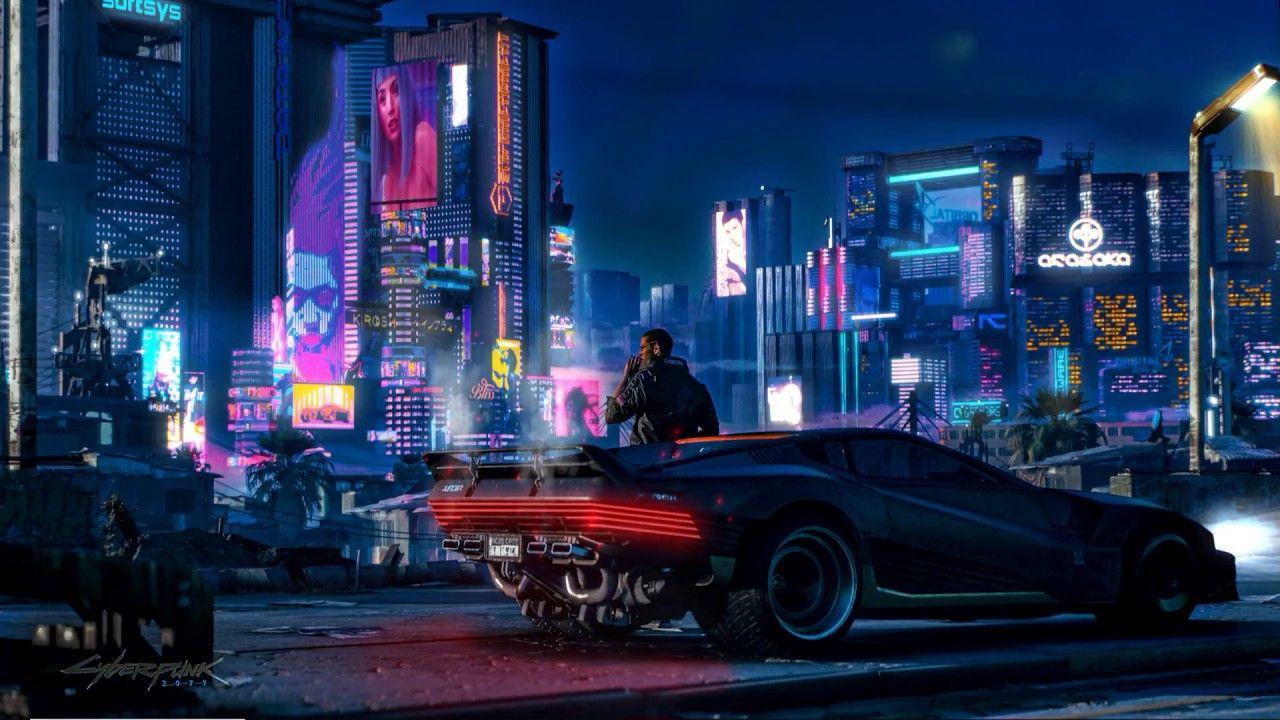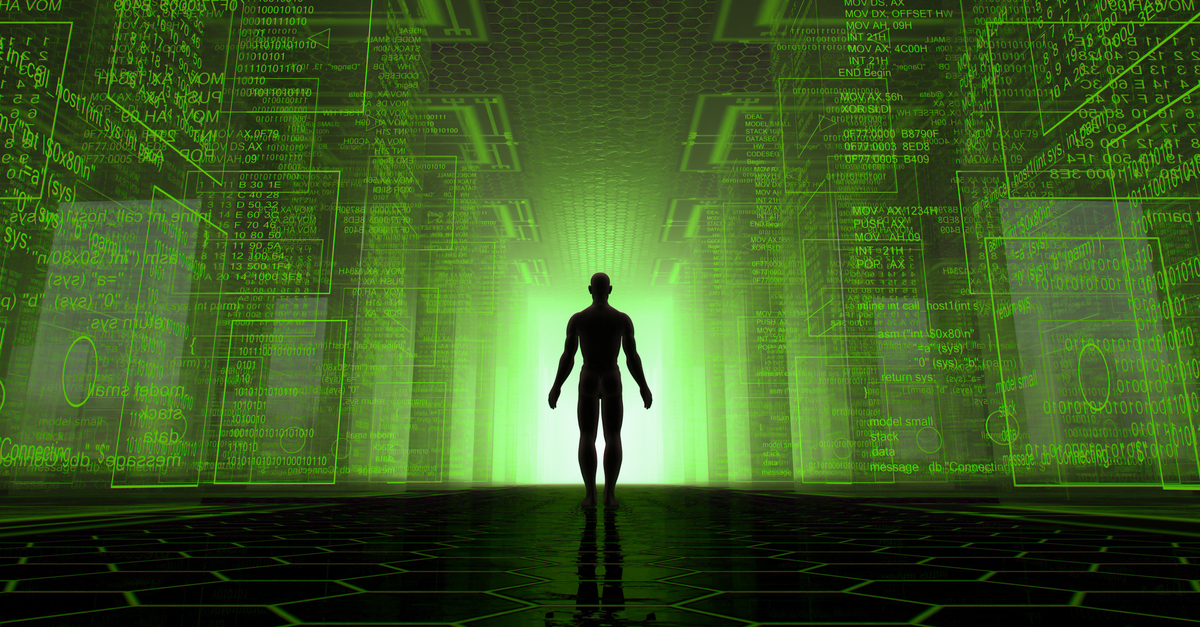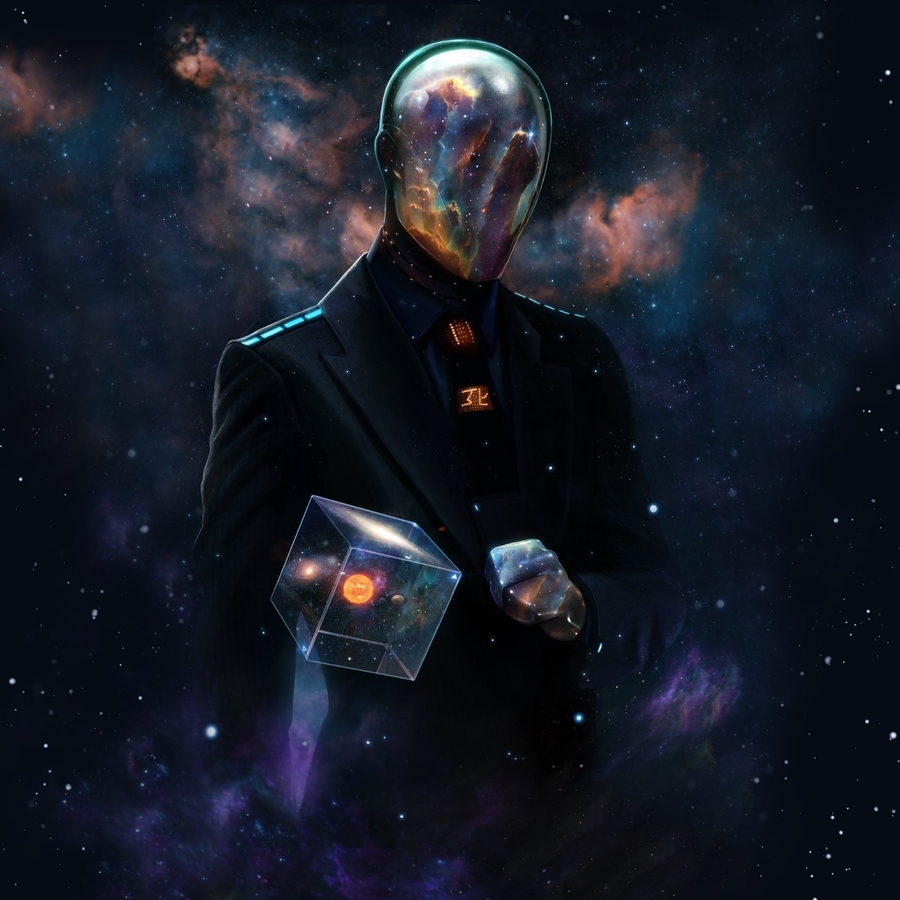Do you think the characters in the games we play have some kind of consciousness? Is it possible that when you play as them, they might be wondering what is it that constrains them and drives them forward towards the objective? They might be really staggered by the fact that some random act of theirs, done unconsciously without any control, leads to some valuable treasure or loads of money, or even their death, while it is actually you who makes the decisions and drive them forwards. They might be wondering if it is fate that some manage to succeed, and some get killed, while it actually depends on the experience of the player playing the character.
Now, imagine one such simulation, except that it is more complicated. Not complicated for you to play, but complicated at the rendering level. Each and every stuff that takes place in the game is modelled and rendered from only a set of a few basic rules, i.e. from the atom-atom interaction. The simulation started off with defining a calculated amount of matter and energy, all balanced to just form the first elemental hydrogen and to go on with the reactions to form stars and stellar systems. The developers were not left with much resources after programming all this, so they decided to continue the simulation on only a randomly selected planet, and again, they only let one species of life to evolve and become so-called intelligent. It is possible that these species in the simulation might develop a consciousness (or maybe programmed to have it) and one day, stare at the infinite universe and wonder if they were alone, or why did the universe favour their evolution, or even why the universe was formed in the first place. They will do this all while being curtained from the fact that the world they live in was accurately programmed by us to be in that exact form.
Today’s computer universe is so powerful that rendering a hyperrealistic 3D world is a piece of cake to us.


With games like Assassin’s Creed Odyssey and Cyberpunk 2077, it is now hard to distinguish between the real world and the simulation world.
If the development pace is maintained, it might not be long before we could possibly simulate the entire universe. So… It might also be true that we are beings inside such a simulation, living the lives constrained by the computer codes written by an “Alien” civilisation in an entirely different universe.
The simulation Trilemma
Rene Descartes once said, “It is possible that I am dreaming right now and that all of my perceptions are false.” The idea that the universe we live in is a simulation is not a recent one but it came to limelight in 2003, when a philosopher Nick Bostrom proposed a trilemma that he called “the simulation argument”. Bostrom’s trilemma argues that one of three unlikely-seeming propositions is almost certainly true:
- “The fraction of human-level civilizations that reach a posthuman stage (that is, one capable of running high-fidelity ancestor simulations) is very close to zero”, or
- “The fraction of posthuman civilizations that are interested in running simulations of their evolutionary history, or variations thereof, is very close to zero”, or
- “The fraction of all people with our kind of experiences that are living in a simulation is very close to one.”
If you did not understand the above points then don’t worry, simplified, the trilemma points out that any civilization which was once at the same level as humans, but later developed further technologically, would have enormous computing power. For such a civilisation, running such a complicated simulation would not be a problem at all. Bostrom goes on to claim that, if the third one of the above three is to be true, then it is very much probable that we might be living in a simulation.

[Image: www.snopes.com]
In a podcast with Joe Rogan, Elon Musk said “If you assume any rate of improvement at all, games will eventually be indistinguishable from reality” before concluding “that it’s most likely we’re in a simulation.”
The famous astrophysicist Neil Degrasse Tyson also argued in favour of the theory. He said in an NBC News interview that the hypothesis is correct giving “better than 50-50 odds” and also told, “I wish I could summon a strong argument against it, but I can find none.”
Why this might be actually true?
There are so many reasons why this theory might be true, and let me talk about a few of those.
First of all, there is the Fermi paradox, there is no reason for us to be alone in this vast universe, with an infinite number of possible human-like civilizations. But still, we have not yet made an extraterrestrial contact, and the only reason we can think of is some mere hypothesis which is unprovable.
Then comes the so-called “glitches in the matrix”, the Mandela effect and the deja-vu. Almost everyone seems to remember seeing Nelson Mandela’s death on TV in the 1980s, while there was no such airing in 1980 and he actually passed away in 2013. There are many other examples of such mass false memories. Though many of us clearly remember black detailing on the Pikachu’s tail, in reality, it’s just yellow. Most of us also don’t seem to remember the death of the legend Neil Armstrong even if it happened recently in 2012. Or for star wars fans, Dark Vader never said his famous dialogue “Luke, I’m your father”, it was just “No, I’m your father”, and C-3PO isn’t all gold but has a silver leg. Such a mass false memory is today called the Mandela effect, and there is no explanation for this.
And the same goes for the feeling that you have already experienced something at some point in time, while it is the first time you are actually experiencing it, i.e. the unexplained deja-vu too.
In 2017, a group of researchers at the University of Washington showed that they could embed malicious computer code into physical strands of DNA. While synthesising DNA, they coded it in such a way that once it is analysed by a computer, the output from the analysis would take over the system and could take command of it. Their aim was to show that computers working in gene sequencing were vulnerable to attack. But they may also have unconsciously revealed that what we perceive to be biological reality was, in fact, a computer code.

What’s more bizarre is that a theoretical physicist James Gates claims he has identified what appears to be actual computer code embedded in the equations of string theory that describe the fundamental particles of our universe. He says he found “error-correcting codes — they’re what make [web] browsers work. So why were they in the equation I was studying about quarks and electrons and supersymmetry?”
And the list is non-exhaustive, it is never-ending and you can always find newer arguments showing that the universe is indeed a simulation.
Is it actually true?
This entire conjecture is based on the assumption that consciousness can be modelled into a computer program or something that a computer programmed entity can develop. But we have zero understanding of consciousness right now, so it’s impossible to disprove this speculation. Some methods were specified to test out this hypothesis. Any computer would have finite computational power, and hence there must be a tiny “pixel” of spacetime that the computer can render. Even though unproved, the Planck scale could be this pixel in our universe, but as said before, no proof for or against this is available. One more argument states that any computer program is subjected to errors in the long run, so dynamic corrections need to be made in order for the program to keep working, and some might argue that the seeming shift in the values of the universal constants like the Hubble’s constant could be this correction, but again, no proofs.

Our god might be not someone who is omnipotent but might be some teenage hacker in some other universe. If this theory is true, nothing would actually change, except for the fact that we need to sit with fingers crossed, hoping that there is no bug that crashes the entire program.
In the words of philosopher Preston Greene, it may be best not to find out if we’re living in a simulation since, if it were found to be true, such knowing may end the simulation.



